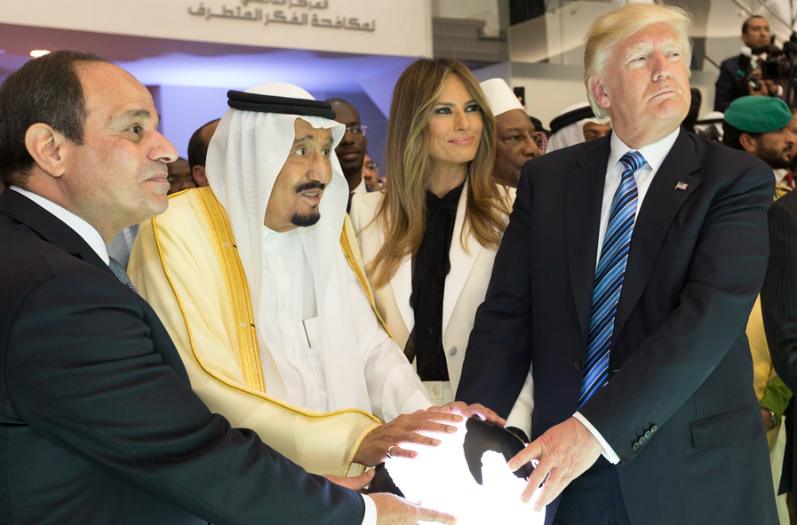US President Donald Trump is heading to Saudi Arabia, Qatar, and the UAE this week, his first trip to the region since starting his second term. With Gaza on a knife’s edge and regional alliances shifting, this visit might reset more than just handshakes and photo ops.
An Unfinished Strategy Meets a Changing Region
Donald Trump isn’t new to Middle East politics. But this week’s visit feels less like a diplomatic routine and more like a balancing act across a minefield. His administration, more than 100 days into its second term, has yet to lock in a clear regional policy. So far, the signals have been mixed.
Some credit him with pushing Israel toward short-lived cease-fires with Hamas and Hezbollah before his January swearing-in. That influence, however, seems to have faded. Gaza is now bracing for a full-scale Israeli military operation, potentially one of the most consequential escalations in years. Trump had pitched a flashy “Riviera Plan” to revive Gaza earlier in 2025, but it fizzled out quickly. Not much has been said about it since.
Still, Washington holds leverage. And Trump, for all his unpredictability, knows it.
All Eyes on Saudi Arabia, Again
Saudi Arabia is Trump’s most symbolic stop. And not just because of the oil.
Crown Prince Mohammed bin Salman (MbS) has positioned Riyadh as a kingmaker — diplomatically and economically. If Trump’s team wants a Saudi-Israel normalization deal, MbS holds the keys. But that’s not coming cheap.
The kingdom wants solid US guarantees: defense pacts, tech transfers, and most of all, civilian nuclear energy capabilities. These aren’t quick wins.
One Gulf analyst put it bluntly last week: “Saudi wants a new deal, not just a handshake.”
Trump’s visit might reignite those talks. Or stall them, depending on what he offers behind closed doors.

Gaza’s Powder Keg: Pressure Mounts on All Sides
The Israeli government is gearing up for what Prime Minister Netanyahu calls an “intense entry into Gaza.” That’s not just military speak.
This could involve relocating more than 2 million Palestinians to a cramped southern zone and cutting off UN humanitarian access — a move already condemned by aid groups. Instead, aid would be distributed by private companies under Israeli oversight.
No one really knows. Since the collapse of his earlier Gaza plan, the White House has been unusually silent on Israel’s new operation. Middle East watchers say this ambiguity creates space for further escalation.
One senior regional official told the Middle East Institute, “He can influence the outcome in Gaza. But he needs to engage — and so far, he hasn’t.”
OPEC’s Ghost of 1973 Lurks Over Oil Prices
Here’s where the stakes really jump.
If the conflict in Gaza grows and Trump can’t prevent regional players from jumping in — especially Iran — the energy fallout could get nasty. The World Bank has already warned that a full Middle East supply disruption could spike oil prices by 56% to 75%.
That’s not an exaggeration.
Let’s recall: the 1973 oil crisis was sparked by an Arab embargo in response to Western support for Israel. Now, the geopolitical puzzle feels oddly familiar. Then, it was Egypt and Syria moving into Israeli-held territories. Today, it’s Israel reportedly preparing strikes on Iranian nuclear sites while also expanding its operations in Gaza.
There’s growing talk of OPEC’s big players — especially Saudi and the UAE — considering options if Trump fumbles diplomacy this week.
Gulf States Want Tech, Trade — and Guarantees
For Qatar and the UAE, Trump’s visit is less about war and more about opportunity.
Qatar is hoping to cement its growing clout as a regional broker — it hosts Hamas officials, talks to the US, and maintains channels with Iran. Trump may ask Doha to pressure Hamas into new hostage negotiations. But Qatar, in return, will want diplomatic assurances and probably something tangible on energy or trade.
Meanwhile, the UAE is eyeing deeper tech and security ties. Abu Dhabi has been waiting on long-stalled agreements with Washington, especially around AI, defense, and clean energy.
And all three Gulf nations — Saudi, Qatar, UAE — are watching to see how serious Trump is about defending their security if Gaza spirals out of control.
Iran, Israel, and the Looming Wild Card
Iran isn’t part of Trump’s trip, but it’s very much in the room.
With reports swirling that Israel may soon target Iranian nuclear facilities, the White House has remained tight-lipped. Trump’s aides have neither confirmed nor denied coordination, but a senior US military official told OilPrice.com that “plans have been reviewed.”
If Israel does strike, and Iran retaliates, the entire region could catch fire — including oil infrastructure in the Gulf.
One Gulf diplomat summed it up this way: “If he [Trump] doesn’t deliver reassurance, we might see preemptive moves. And that won’t be good for anyone — least of all the oil market.
